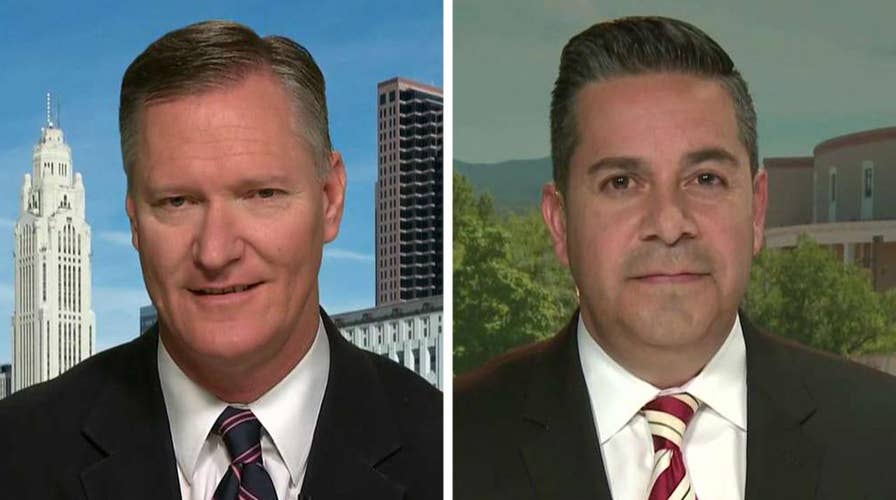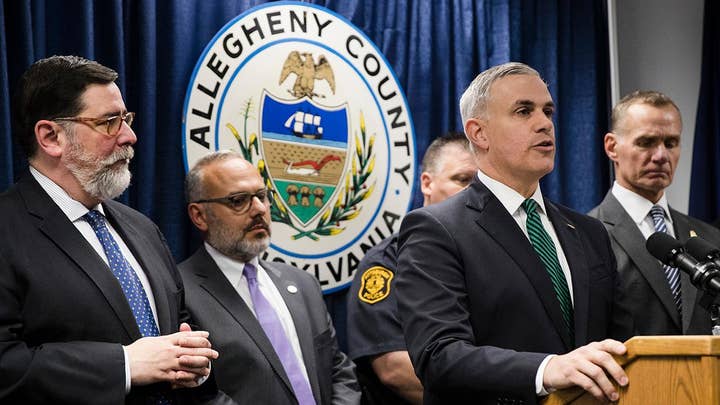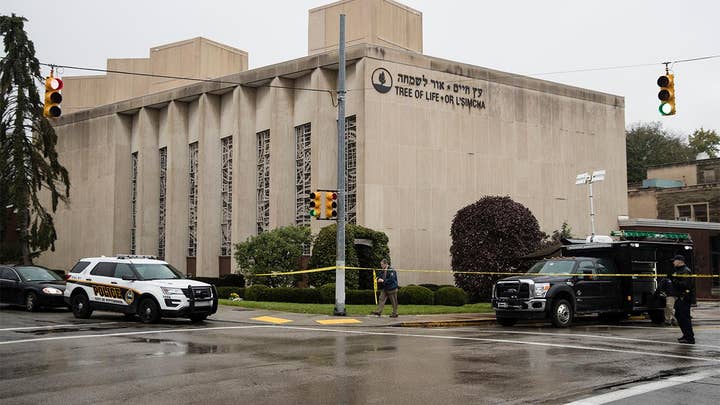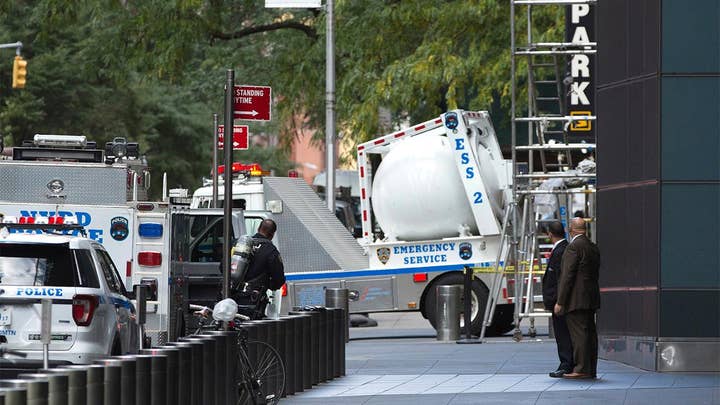A look at midterm battlegrounds with the House at stake
Democrats need to flip at least 23 seats to take over control of the House of Representatives; insight from Rep. Ben Ray Luján, chair of the Democratic Congressional Campaign Committee, and Rep. Steve Stivers, head of the National Republican Congressional Committee.
The chairs of both the Democratic and Republican House campaign arms on Sunday called for unity in the aftermath of the mass shooting in Pittsburgh, and said the recent bout of violence should not be politicized in the final days ahead of November’s midterm elections.
During an appearance on “Fox News Sunday,” Reps. Ben Ray Luján, D-N.M., and Steve Stivers, R-Ohio, said that elected officials need to work together to unify the country following Saturday’s mass shooting at a Pittsburgh synagogue and a rash of bomb threats leveled against prominent critics of President Trump.
“We should come together as a country," Luján said. "This should not be a political response, but rather a response at how we can further bring us together."
Stivers added that both Democrats and Republicans have in recent years been the subject of political violence, citing the recent bomb threats against Democrats and the 2017 shooting that targeted a group of GOP lawmakers during baseball practice.
“I want to say that Ben is not my enemy. Democrats are not my enemy. They are my opponents, and while we have different visions for the future of America, different directions, we are all Americans first," Stivers said.
"We need to come together and do what’s in the best interest of America," he added. "No matter who wins in 10 days I believe we can come together and make that happen."
Along with their appearance on “Fox News Sunday,” the two also showed up on NBC’s “Meet the Press” to push the unity message.
“I think we all bear some responsibility and we need to try to clean up our act and try to bring civility to our congress and frankly to our dialogue,” Stivers said.
Luján added that Congress has a responsibility to move past "finger pointing."
The calls for a more unified nation echo those of many Americans tired of the divisive politics inside the Washington Beltway.
"It's like our country is becoming 'The Hunger Games,'" said Elisa Karem Parker, a voter in Kentucky.
The volatile tribalism now so ingrained in American life will eventually right itself, says Robb Willer, a sociology professor at Stanford University, but not until the public decides it's had enough and stops rewarding politicians who use incendiary language and demonize the other side. It's impossible to guess, he notes, how much damage will be done in the meantime.
"That is the question of our time: Are we going to choose to continue the war, or are we going to choose peace? And we don't know yet what the answer to that will be, because while a majority of Americans are fed up with the extremity of our political divisions, it does feel like we're stuck here," Willer says. "It will get worse before it gets better."
Animosity between parties has been growing for decades now, to the point that studies show Republicans and Democrats don't want to date one another, don't want their children to marry one another and don't want to live in the same neighborhoods at a rate unprecedented in modern America. At the same time, politicians began using increasingly apocalyptic language. Willer says those two forces — the splintering of society along party lines and the ascent of vitriolic campaigning — merged to create a breeding ground for violence.
There is little evidence the tide will turn soon.
Moderates are becoming increasingly rare in Washington, D.C., and Republicans willing to criticize Trump's rhetoric, such as Sen. Jeff Flake of Arizona and Sen. Bob Corker of Tennessee, are not running for re-election.
"You don't really have those reasonable voices kind of trying to bring everybody together," says Tom Freeman, a Republican attorney in Lincoln, Neb. "It's just kind of round and round we go, and the sides just get more and more extreme, and you don't have that rational leader in the crowd saying, 'Hey, let's dial it back.' The sad thing is, if you did have that person, I don't know that anyone would listen to them."
Some already casting votes for the Nov. 6 midterm elections say they hope the system can self-correct. The future of the nation, the very concept of democracy, is at stake.
"America is resilient; we find a way even in our darkest days," Cordell Lawrence, a 36-year-old voter from Kentucky, said.
"Maybe we have to hit rock bottom before we find how to get back up," he added. "We're probably pretty close to rock bottom today. At least I hope we are."
The Associated Press contributed to this report.








